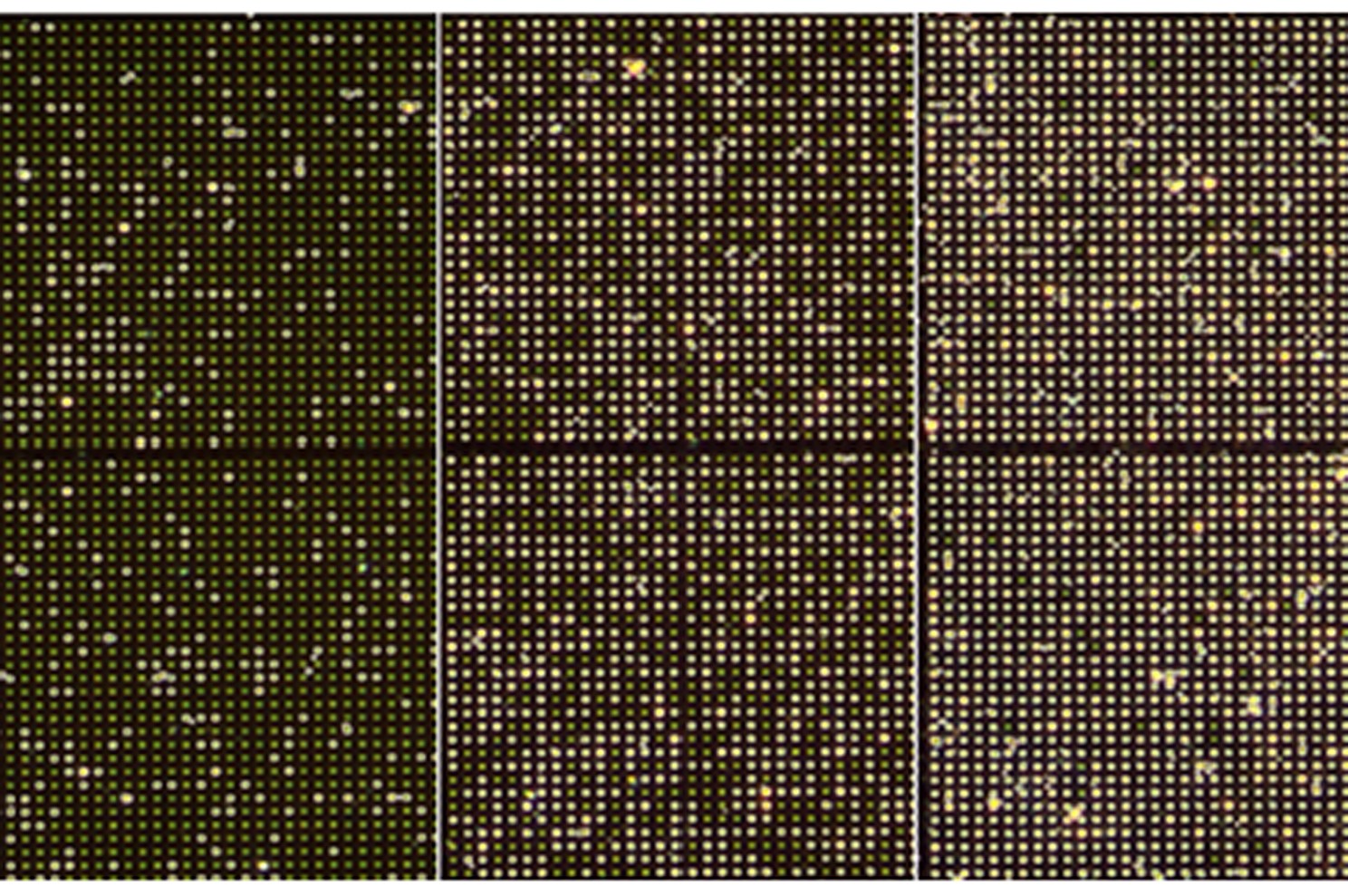Nanoneedle technology licensed for early disease detection

Arrayed by the millions on a single chip, nanoneedles are able to detect both minuscule and abundant levels of molecules across the full proteome, providing critical information on the composition of a sample. Image courtesy of NanoMosaic
A Boston-based startup company, NanoMosaic LLC, intends to commercialize a high-throughput, high-sensitivity platform for analyte detection developed at Harvard. Through an exclusive license agreement with Harvard Office of Technology Development, NanoMosaic is developing screening tools based on functionalized ‘nanoneedles’ that may aid in a number of biomedical fields including the early detection of disease, prognostic monitoring, and biomarker discovery.
The potential applications also include infectious disease monitoring, including for COVID-19, as the platform could be used to measure antibody levels in patient samples over time, providing important information on the development of, or decline in, a patient’s immunity to the novel coronavirus.
The nanoneedle technology was created by Qimin Quan, while he was a junior fellow at Harvard’s Rowland Institute, along with others at Harvard. Each nanoscale needle bears an antibody that can bind with a specific protein of interest. Upon binding, the needle changes color to signal its catch. Arrayed by the millions on a single chip, these nanoneedles are able to detect both minuscule and abundant levels of molecules across the full proteome, providing critical information on the composition of a sample.




